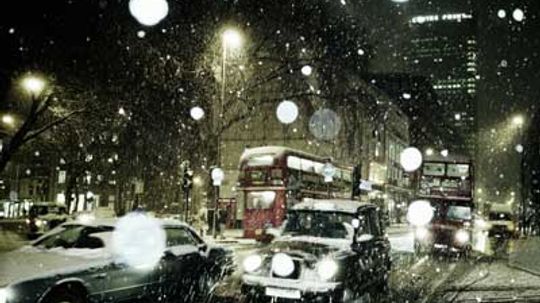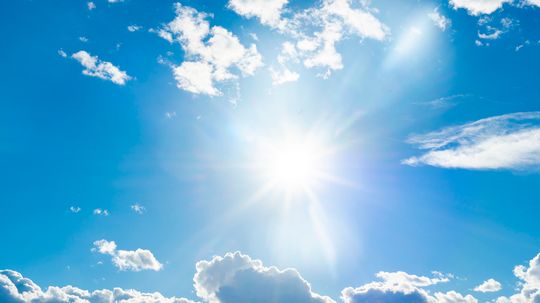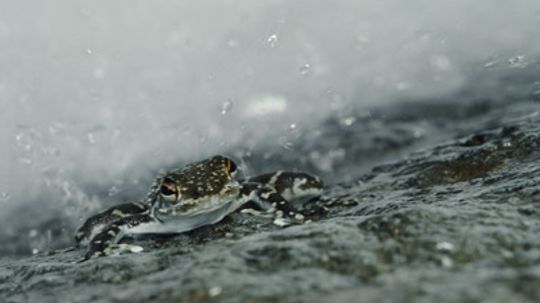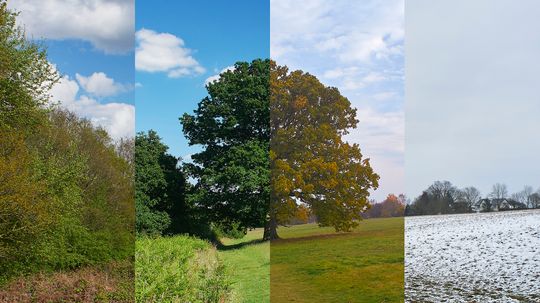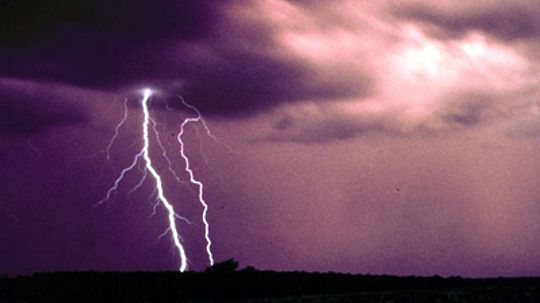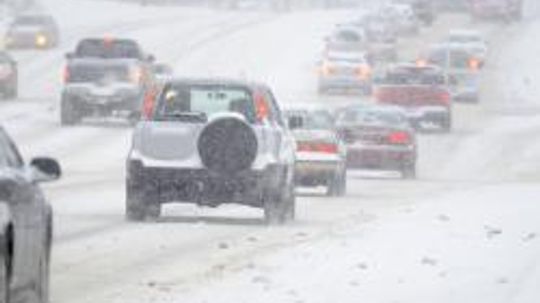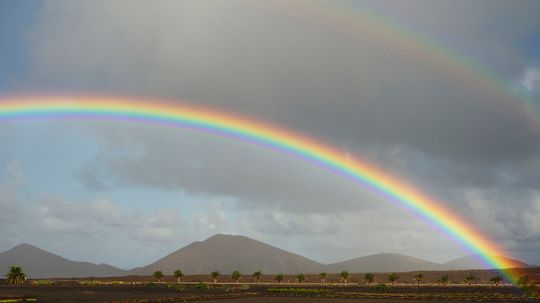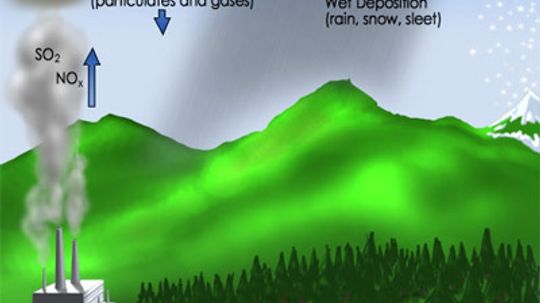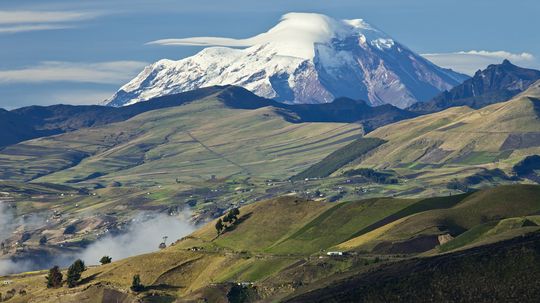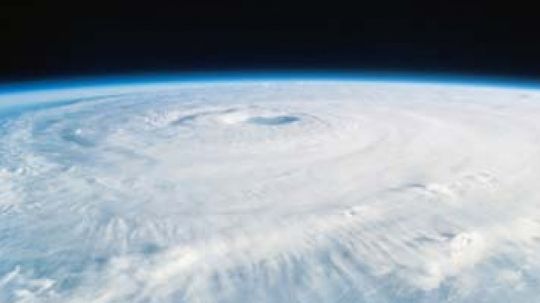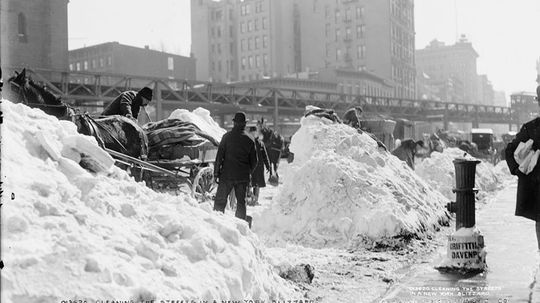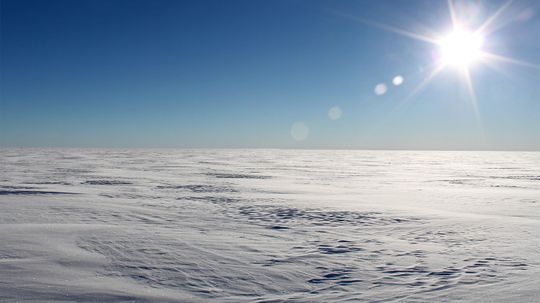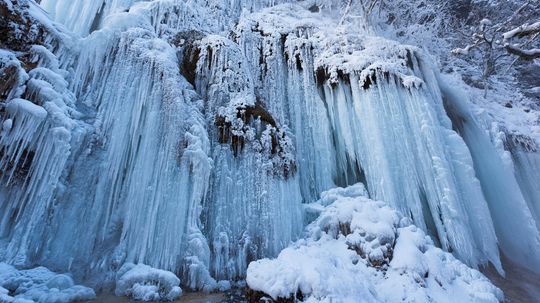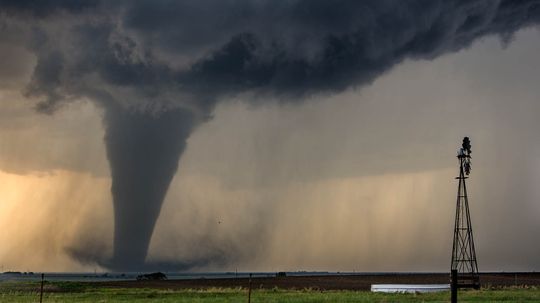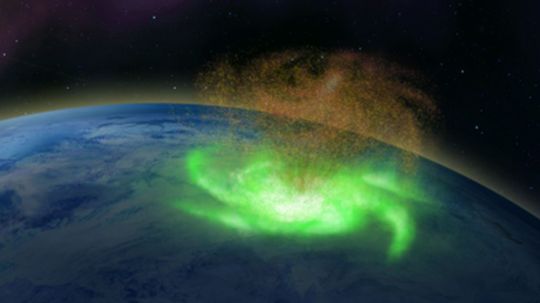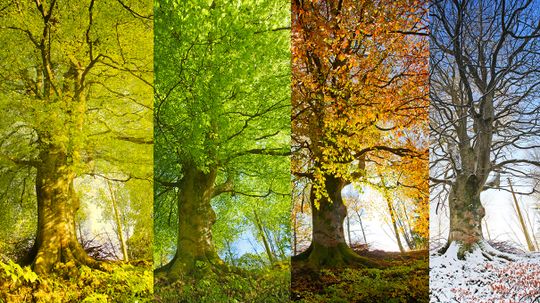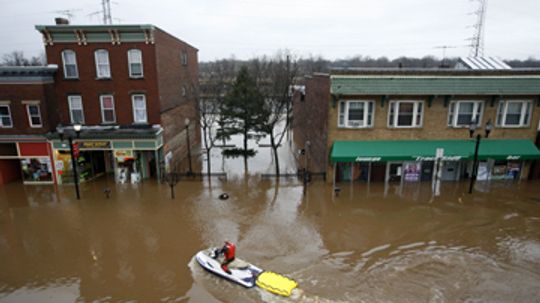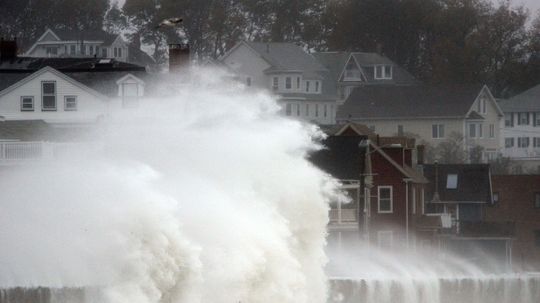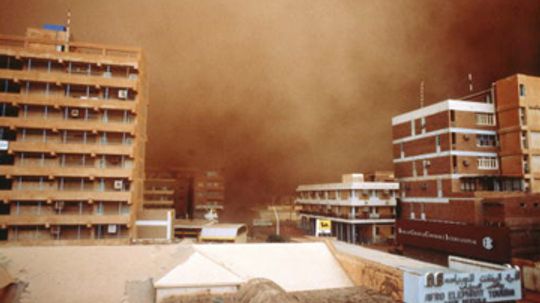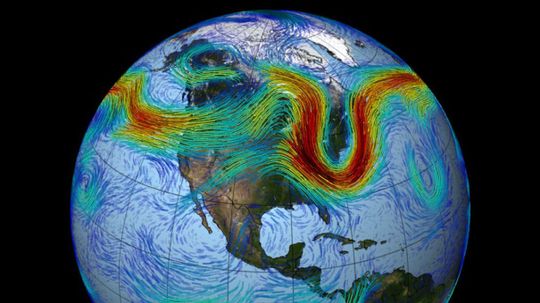Climate & Weather
Atmospheric sciences help us understand and predict the weather. Learn about topics such as the seasons, why it snows, and how rainbows are formed.

14 Types of Clouds Drifting Across the Sky
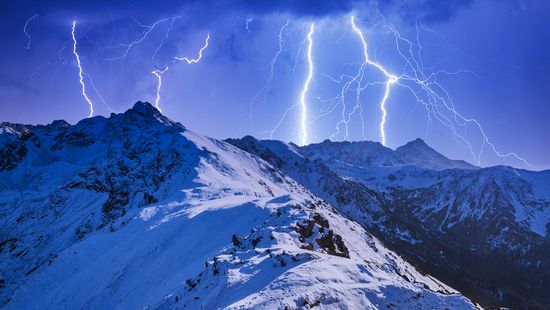
Thundersnow Only Occurs in 7 of Every 100,000 Thunder Storms

The Coldest Country in the World Is Below Freezing, on Average
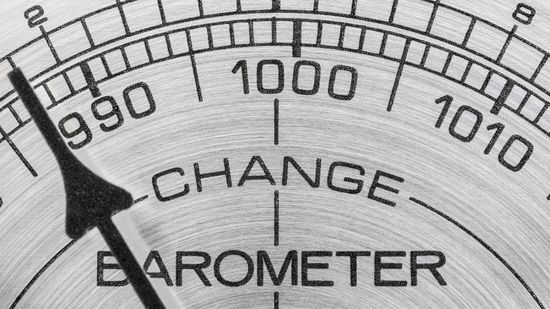
How Is Barometric Pressure Measured and Why?
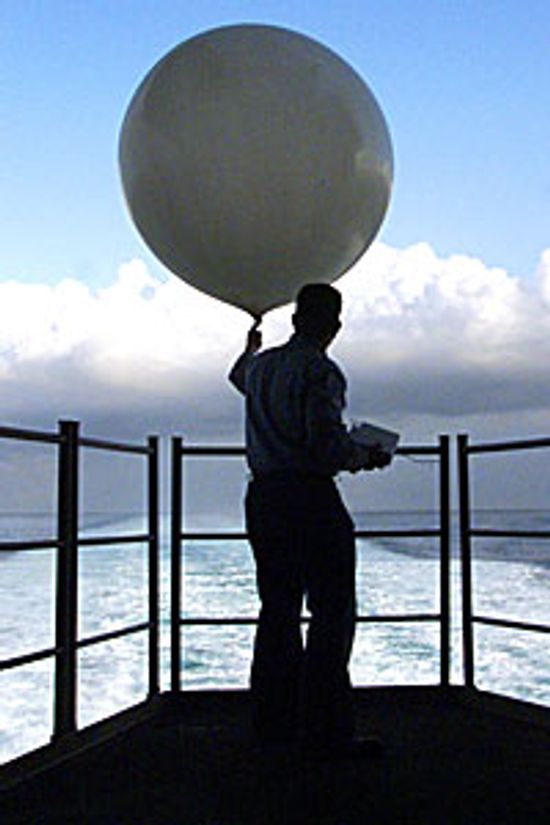
How a Weather Balloon Works?

How the Tornado Intercept Vehicle Works

10 States With the Best Weather Year-round

Find the Best Weather in the U.S. in These 8 Cities

Can China control the weather?
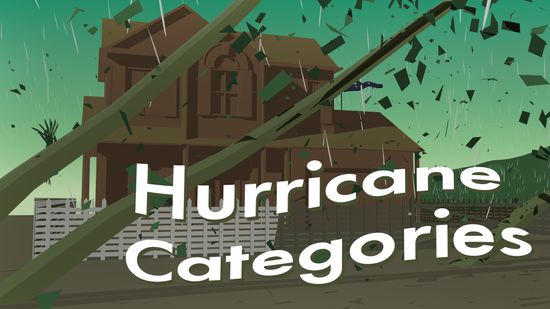
HowStuffWorks Illustrated: Hurricane Categories
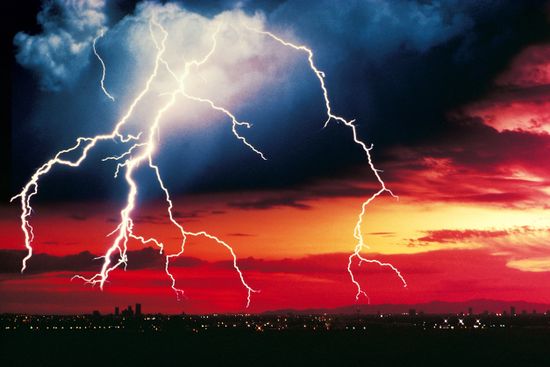
10 Myths About Lightning
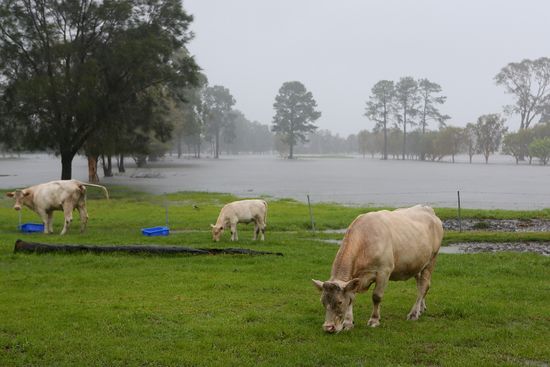
10 Ways Animals Supposedly Predict the Weather
Learn More / Page 3
Before barometers and thermometers, people looked to the land and local lore to predict rain or shine. Have sophisticated statistical models and measuring tools changed the art of forecasting the weather that much?
By Robert Lamb
We've all probably looked up and wondered why the sky is blue instead of, say, brown. The sky is blue because of the way Earth's atmosphere scatters light from the sun.
A heavy rain in which frogs come plummeting down isn't a pretty sight, but it happens more often than you'd think. Why do animals sometimes fall from the sky?
By Julia Layton
Advertisement
Sometimes a lightning storm heralds sightings of St. Elmo's Fire. What causes the mysterious glow sailors interpreted as a sign of salvation?
By Julia Layton
What causes the seasons? Why are the seasons reversed in the Northern and Southern Hemispheres? And if the Earth moves in an elliptical orbit around the Sun, why don't we have two summers and two winters every year?
By Sascha Bos
You may have heard that you can figure out how far away lightning is by how long it takes for the thunder to arrive after you see the flash. Is this true? How do you calculate it?
Why is it colder at the top of a mountain than it is at sea level? Heat rises, and the top of a mountain is closer to the sun, so shouldn't it be hotter at the top of a mountain?
Advertisement
Precipitation can vary from rain to snow when the temperature is below freezing. Why does precipitation not always fall as snow when it's below freezing?
We can usually see rainbows right after a rainstorm on a warm Spring day. These giant colorful arcs stand out against the dark rain clouds. Have you ever wondered what causes this phenomena? Find out how rainbows are created in this article from HowStuffWorks.
Tornado chasers generally stay about a mile away from the tornado itself -- but not IMAX cinematographer Sean Casey. He has built a Tornado Intercept Vehicle and hopes to withstand a direct hit. Check it out.
Acid rain is caused by emissions of sulfur dioxide and nitrogen oxides from power plants, cars and factories. Find out how acid rain is produced, how it affects natural and man-made objects and how governments aim to reduce it.
By Sarah Dowdey
Advertisement
A perfect climate means different things to different people. These 10 countries span the globe and offer a wide range of climates to satisfy any taste -- hot, cold or in-between.
Is hurricane intensity increasing? It all depends on who you ask. How have scientists come to so many different conclusions about the ferocity of these seasonal storms?
Heavy snowfall is just one mark of a bad snowstorm. But the biggest snowstorms of all time also brought strong winds and in some cases, major power outages.
Iceland? The North Pole? Antarctica? There are a lot of super cold places on this planet, but which one can claim bragging rights as the coldest place on Earth?
By Mark Mancini
Advertisement
It might seem that the constant rushing of water over a falls would keep it from freezing, but that isn't always the case. Check out the science behind the phenomenon of the frozen waterfall.
By Mark Mancini
Dusk is a beautiful time of day. So is twilight. But when does one turn into the other? And did you know there were three versions of each?
Understanding a tornado watch vs. warning is the difference between preparing for a potential disaster or immediately seeking shelter.
By Yara Simón
In 2014, scientists observed a space hurricane for the first time; they reported their findings this year. But what's a space hurricane - and do we on Earth have to worry about with them?
Advertisement
The four seasons experienced by Earth's midlatitude regions are being gradually altered by global warming - but a climate expert says they won't completely go away.
When a hurricane or flash flood strikes a city, it can leave residents stranded in their cars, homes or other buildings waiting for rescue. How do rescue teams know where to go first?
"Nor'easter" is one of those words that makes you think of an old mariner scanning the horizon for a pending storm. What does it really mean - and why don't we say "northeaster"?
Have you ever wondered how weather stations gather all of their data? Even though technology for predicting the weather has improved, simple weather balloons do a lot of the hard work every day.
Advertisement
Though they're outranked by other, more dangerous natural phenomena, dust storms can still do serious damage to life and property. What causes these massive storms?
Polar temperatures are changing more rapidly than equatorial ones, making the jet stream slower and wider, and extreme events longer-lasting.
